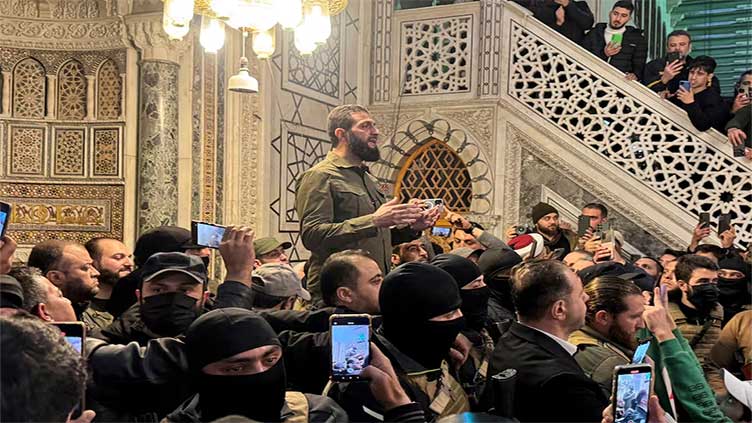Top US officials in Damascus to meet new Syrian rulers, State Department says

World
The US officials will discuss a set of rules such as inclusivity and respect for minorities rights
WASHINGTON/DAMASCUS (Reuters) – Top US diplomats were expected to hold Washington's first in-person official meetings with Syria's new de facto rulers led by Hayat Tahrir al-Sham in Damascus on Friday, hoping to gauge how the former al Qaeda affiliate plans to run the country.
The United States, other Western powers and many Syrians were glad to see militias led by HTS topple President Bashar al-Assad, but it is not clear whether the group will impose strict Islamic rule or show flexibility.
The US officials from the Biden administration will discuss with HTS representatives a set of principles such as inclusivity and respect for the rights of minorities that Washington wants included in Syria's political transition, a State Department spokesperson said.
The State Department's top Middle East diplomat Barbara Leaf, Presidential Envoy for Hostage Affairs Roger Carstens and Senior Advisor Daniel Rubinstein, who is tasked with leading the Department's Syria engagement, are the first US diplomats to travel to Damascus since Assad's rule collapsed.
Western governments are gradually opening channels to HTS and its leader Ahmed al-Sharaa, a former commander of an al Qaeda franchise in Syria, and starting to debate whether to remove the group's terrorist designation. The US delegation's trip follows contacts with France and Britain in recent days.
The delegation will also seek information about US journalist Austin Tice, who was taken captive during a reporting trip to Syria in August 2012, and other American citizens who went missing under Assad.
"They will be engaging directly with the Syrian people, including members of civil society, activists, members of different communities, and other Syrian voices about their vision for the future of their country and how the United States can help support them," the State Department spokesperson said.
"They also plan to meet with representatives of HTS to discuss transition principles endorsed by the United States and regional partners in Aqaba, Jordan."
The US cut diplomatic ties with Syria and shut its embassy in the capital Damascus in 2012.
SYRIANS GATHER
Several hundred Syrians gathered in Damascus' central Ummayad Square on Thursday to call for a democratic, secular state that ensures equal rights for women. It was the first such demonstration since Assad's ouster.
"No to religious rule," "Secular" and "Civilian constitution," they chanted, with some waving the newly adopted Syrian flag. Many displayed signs declaring "Syria for all Syrians" and "A civilian democratic state for all."
There is widespread apprehension among Syrians that the new administration will gravitate towards hardline religious rule, marginalising minority communities and excluding women from public life.
Obaida Arnout, a spokesperson for the Syrian transitional government, said this week that women's "biological and physiological nature" rendered them unfit for certain governmental jobs.
"We felt the threat after hearing these comments. We don't want to squander what we've gained through this revolution. If we don't speak up now, we'll be silenced forever," said Nour Shakhashiro, 21, sitting drawing and distributing portraits of influential Syrian women.
Syrian rebels seized control of Damascus on Dec. 8, forcing Assad to flee after more than 13 years of civil war and ending his family's decades-long rule.
The rebel sweep ended a war that killed hundreds of thousands, caused one of the biggest refugee crises of modern times and left cities bombed to rubble, countryside depopulated and the economy hollowed out by global sanctions.
The lightning offensive raised questions over whether the rebels will be able to ensure an orderly transition.
Forces under the command of al-Sharaa - better known as Abu Mohammed al-Golani - replaced the Assad family rule with a three-month caretaker government that had been ruling a rebel enclave in Syria's northwestern province of Idlib.
Washington designated al-Sharaa a terrorist in 2013, saying al Qaeda in Iraq had tasked him with overthrowing Assad's rule and establishing Islamic sharia law in Syria. It said the Nusra Front, the predecessor of HTS, carried out suicide attacks that killed civilians and espoused a violent sectarian vision.
Golani said the terrorist designation was unfair and that he opposed the killing of innocent people.
Washington remains concerned that ISIS could seize the moment to resurrect and also wants to avoid any clashes in the country's northeast between Turkey-backed rebel factions and US-allied Kurdish militia.


